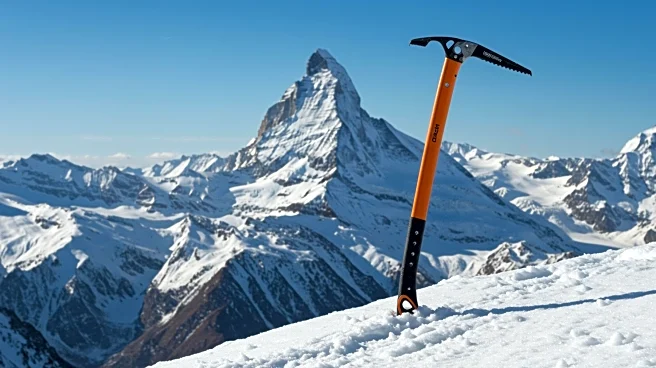What's Happening?
The body of Chinese mountaineer Guan Jing has been recovered and brought to Skardu after she died on August 12 due to a head injury caused by falling rocks while descending from K2. Guan Jing had successfully reached the summit of K2 on August 11 with a group of climbers before the tragic incident occurred on the Abruzzi Spur route, known for frequent rockfalls. The recovery operation was initially attempted on foot due to poor weather conditions that grounded helicopter operations. Eventually, Army Aviation managed to evacuate her body by helicopter from Concordia. Guan Jing's body was found 100-150 meters above the Advanced Base Camp at an altitude of approximately 5,400 meters.
Why It's Important?
The death of Guan Jing highlights the inherent dangers associated with climbing K2, one of the world's most challenging and dangerous mountains. With a fatality rate significantly higher than Mount Everest, K2 poses serious risks to climbers, emphasizing the need for enhanced safety measures and preparedness. The incident serves as a somber reminder to the international mountaineering community of the unpredictable nature of high-altitude climbing and the importance of rigorous safety protocols. The loss of Guan Jing is deeply felt among her family, friends, and fellow climbers, underscoring the perilous nature of such expeditions.
What's Next?
Following the recovery of Guan Jing's body, the focus may shift to reviewing safety measures and protocols for climbers attempting to summit K2. The mountaineering community might engage in discussions on improving safety equipment and strategies to mitigate risks associated with rockfalls and other hazards. Additionally, there could be calls for increased support and resources for rescue operations in the region, ensuring timely and effective responses to emergencies.
Beyond the Headlines
The tragic incident involving Guan Jing may prompt broader discussions on the ethical considerations of high-risk mountaineering. Questions regarding the balance between adventure and safety, as well as the responsibilities of expedition organizers, could arise. The event might also lead to a reevaluation of the cultural significance of mountaineering in regions like Gilgit-Baltistan, where such activities are both a source of local pride and economic opportunity.








